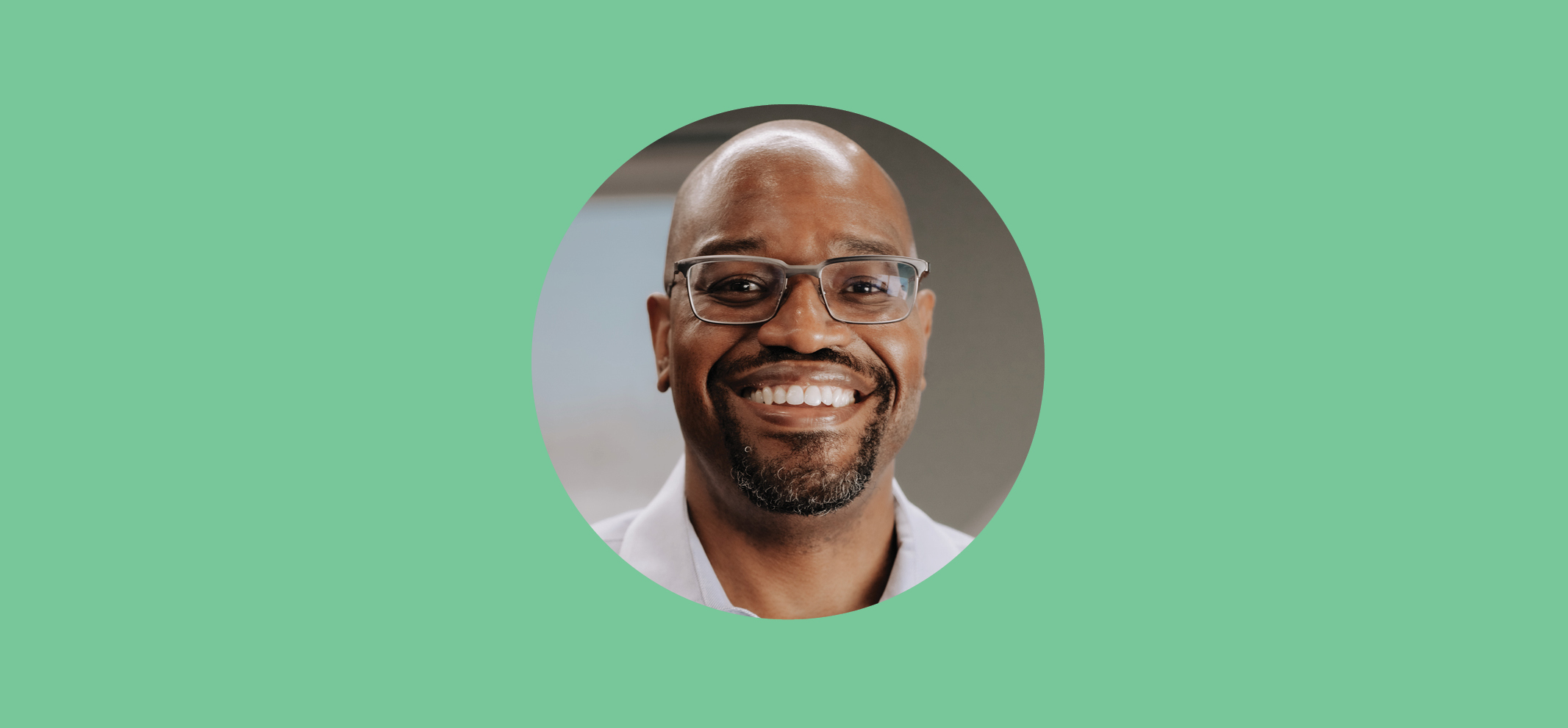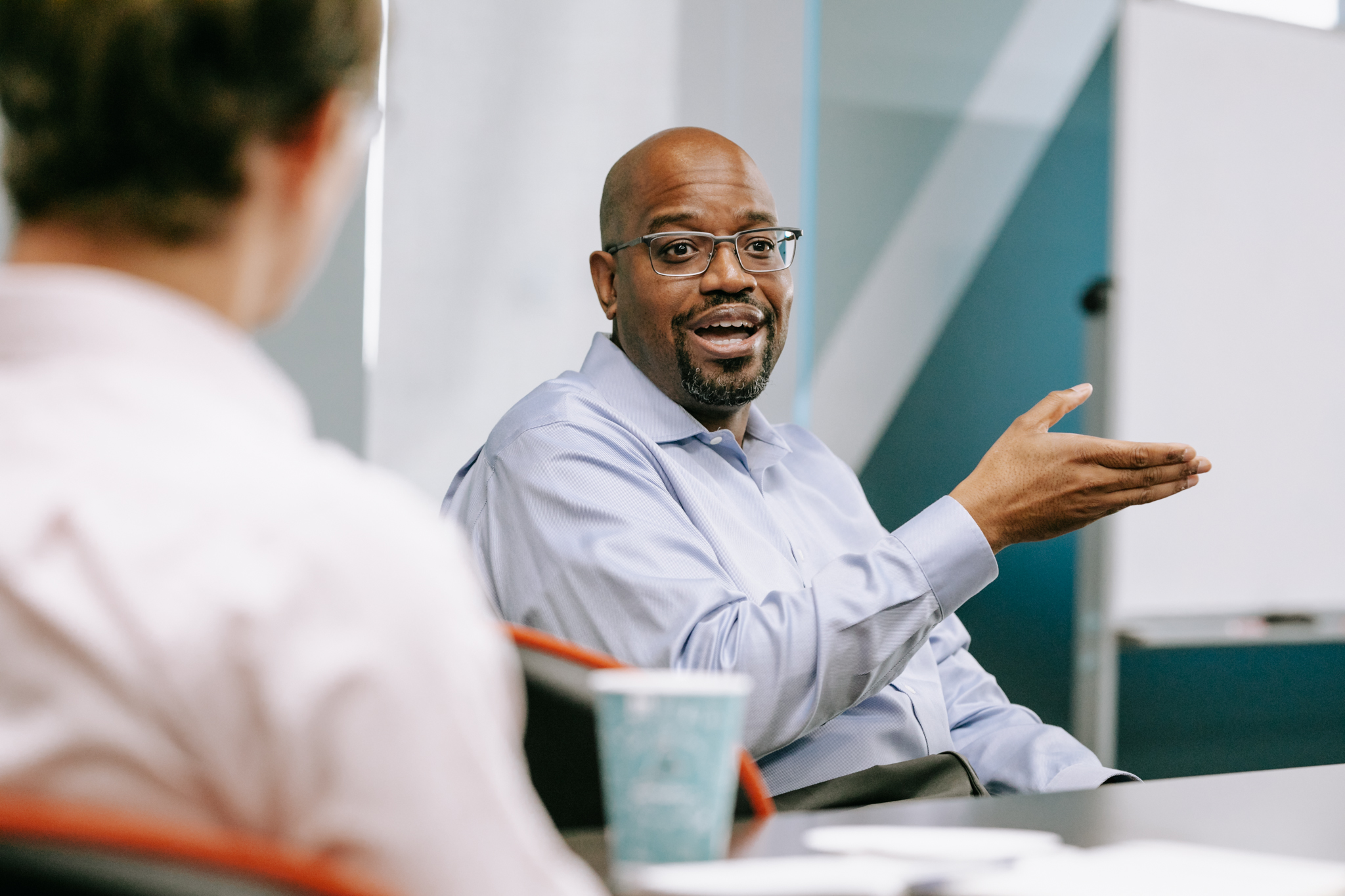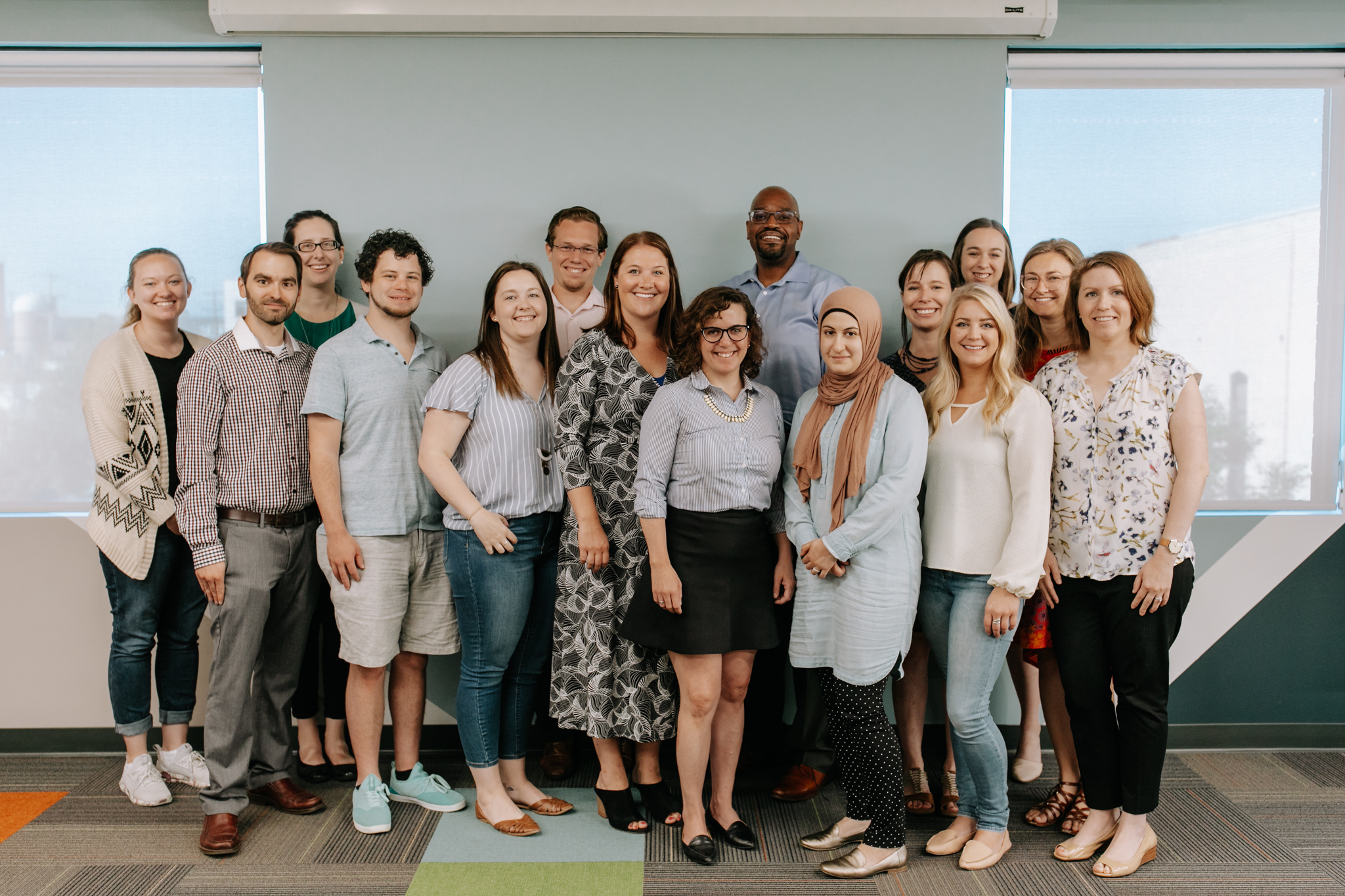
Words by Julian Andrews & Photos by J Olson
Craig Warren isn’t afraid to be idealistic.
The VP for Enterprise Solutions at the Minnesota Children’s Museum has an important story to share with the group of young nonprofit professionals gathered at Minnesota Council of Nonprofits on a bright June morning. His path was a winding one, but always guided by a belief in the power of creating sustainable change.

A Military Man
From an early age, Craig wanted to join the military. For a young, ambitious African American man the benefits were clear—his grandfathers were both WWII veterans and there were high-ranking people of color in the military, something that he didn’t see in the private sector. The military would also pay for his education.
But it was more than ambition and pragmatism that drew Craig to the military. He believes that there are things worth fighting for and the idea of working in service to higher ideals appealed to him.
“I believe in ideals and I believe when something falls short of the ideal you don’t give up on it,” he says. “You don’t get disengaged. You say, ‘How can I continue to make this better and live up to what it is.’”
After committing to the Army, Craig got his undergraduate degree at Johns Hopkins with a double major in political science and anthropology. While there he interned with the Baltimore City Council and developed an interest in public policy that he turned into a master’s degree at the University of Chicago.
The University of Chicago challenged Craig to develop his data skills and gave him the opportunity to work with a community development organization on the South Side, an economically disenfranchised area directly adjacent to the wealthy, privileged university. While there he was awakened to the idea of ‘poverty pimps.’ That stuck with him.
“I hadn’t thought about the amount of money that people make off of people being poor in the same way that people profit off of war and conflict. That stayed with me, and that is part of where I’m at now.”

The Private Sector Beckons
By the time Craig had finished four years of military service, he knew that it wasn’t his calling. That begged the question—what was? Craig thought he would go back to a job in the government or in nonprofits, but he found himself highly sought-after by the private sector. Potential employers valued the responsibility and discipline he brought from his military background and his master’s program had given him strong analytical skills. Craig started working for a consulting company in Atlanta.

Craig speaks highly of his time as a consultant. The money was good, and the job gave him opportunities to travel, but there was more than that. “If you’re inclined to that lifestyle, [consulting] can be an incredibly rich experience, getting a diverse view of experiences in a short period of time that you wouldn’t get staying in a particular organization,” he says.
But there was a downside. While moving up the ladder and eventually taking jobs working for Coca Cola, Rockwell Automation and eventually Best Buy, Craig realized something was wrong. He had spent far more time in the private sector than he intended, and he was starting to feel the effects of being isolated from his passions, and a growing impostor syndrome from working in a field that wasn’t aligned with his background.
“There was a growing sense that my battery was being depleted faster than it was being filled. I had a sense that something was off.”

Back To His Roots
Craig returned to the social sector, taking a job as the COO of Greater Twin Cities United Way. It was a perfect fit. He realized that his ideal role was as a general manager—that being able to manage many kinds of organizations is a valuable skill in the nonprofit world. Now, working at a cultural institution at the Children’s Museum, those managerial skills are paying off in yet another different environment.
“Nonprofit is a tax status, it’s not an operating model,” Craig said. “There is as much diversity within the nonprofit sector as there is in the private sector, arguably even more.”





